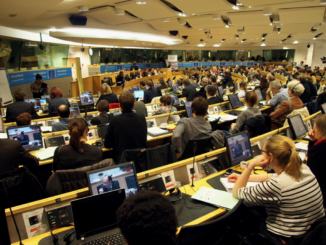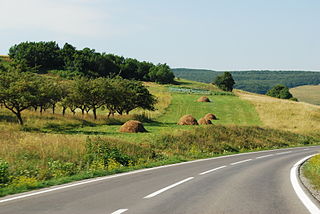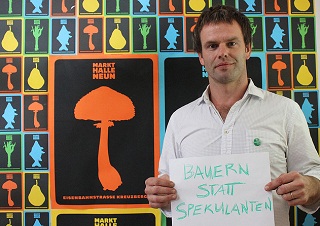
In a chilling synchronicity, the 30th of July was the World Day against Trafficking. It was also the exact day a Greek court chose to announce the acquittal of four farmers who shot and wounded over two dozen immigrant strawberry pickers. Among the charges the owner of the farm had been accused was human trafficking.
As the Greek and international media are reporting since yesterday, the verdict provoked strong reactions by politicians, unionists and anti-racist organisations characterising the decision unjust and shameful.
The victim’s lawyer, Moisis Karabeyidis, stated outside the court “I feel shame as a Greek. This decision is inhumane, shameful and a disgrace for the greek justice “.
The outrageous incident occurred last year in the a strawberry growing area Manolada, which is in west Peloponnese. There 200 foreign fruit pickers protested as they have not received 6 months wages. More than 30 Bangladeshi were wounded after three foremen opened fire.
However, although the farmers admitted the shooting, the owner of the farm and one foreman was found not guilty. While the other two were given sentences of 14 years and seven years – they were also set free pending appeals.
The shocking event – mentioned numerous times as “blood and strawberries” – made the tour of the world last year and revealed the appalling living and working conditions of migrant workers in the area.
Subsequently, Amnesty International in Greece conducted an investigation in the strawberry villages area only to confirm the climate of fear among the workers living jammed in sheds with no access to clean water and hygiene. According to witnesses’ interviews, in that region, 2000 Bangladeshi and 3000 other nationalities land workers such as Bulgarians and Albanians were working. Some have no residence permits. Amnesty International is not the first to witness the exploitation of immigrants in the area. Since 2008, Greek journalists have been reporting on the low wages, the bad living conditions and bad treatment of the strawberry pickers in Manolada. There were even journalists that have been threatened after revealing the human trafficking of the people there.
As Dina Daskalopoulou, journalist, stressed in the New Statesman, while she was investigating the issue with her colleague Makis Nodaros in 2008, for a Greek newspaper magazine, they received death threats.
Modern Slavery?
It is hard to believe in Greece of today that these sort of slavery-like conditions exists. And It is not a problem only in Greece. Similar stories have been reported from Italy where migrant workers are over-exploited illegally in tomato or orange farms or in salad farms Spain. The fruits and vegetables products from South Europe, like the strawberries from Greece are destined mainly for exports to North of Europe or Eastern Europe.
The causes are the same everywhere. On one part of the world, in Europe, the industrial agriculture operating model accentuating the last years with the persistent economic crisis that brought the rise of the input prices and pressure to lower the prices that get the farmers and on the other part of the world, in Asia and Africa, where poverty wars and conflicts push people to take all risks and at any cost to travel for a better life in the western world.
As the UN Refugee Agency representation in Athens was stating in an interview rarely the media speaking for the contribution of the immigrant workers in agriculture for example, as in many cases without them it would have been impossible the harvesting of products.
In Greece, this year, the parliament passed a migrant law, which aimed to improve migrants’ situation. Besides the measures that will set rules for the living conditions of the workers in the farms, the new law is setting measures that will enable farmers to invite foreign workers from third countries. However, as farming press pointed out, many producers find that the law is a good step in the right direction but does not solve the existing problem of the migrant workers with no papers who already have been working on Greek farms for years. New economic measures changed the taxation scheme for the Greek farmers who are obliged to declare their costs and profits at the end of this year. That means that they can’t use the foreign workers who are illegal in the country. Greek producers are accusing the Greek state of not taking into account their view, which would have benefited all involved parties.
Inviting new workers for a period of six months takes a lot of time, adds to bureaucracy and is not financially attractive as it adds a lot to costs.
It is also being reported, that after the social and political outrage over the acquittal of the four farmers from the Mixed Jury Appeals Court of Patras on the strawberry case, the prosecutor of the High Court of Greece asked to intervene considering the possible annulment of the decision.
While we will be waiting the outcome of this case it is worth pondering the real cost of the food we eat. Encouraging our governments to shift away from this unsustainable model of industrial agriculture towards a more fair and agroecological makes eminent sense.





